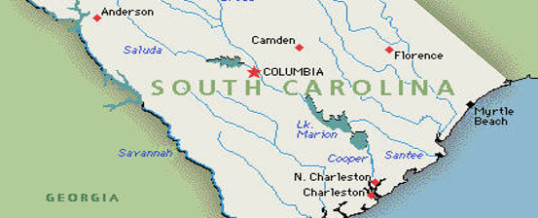
Barbados was an economic powerhouse in the Americas and the British Empire when globalization had its initial stirrings in the 17th century.
Indeed, Barbadians were in the vanguard of what is now referred to as “Western capitalism” and the linchpin of that economic system was a mix of an aggressive drive for wealth by early Bajans whose family roots were in England, the lucrative sugar industry and the Atlantic slave trade in the Caribbean.
That historical picture was painted in Charleston, South Carolina on Thursday evening by Barbadian historian Sir Hilary Beckles, principal of the Cave Hill campus of the University of the West Indies.
As Sir Hilary explained it in a 90-minute lecture and question-and-answer session on the “Barbados-Carolina Connection” at the Founder’s Hall of the Charles Towne Landing Site, “It is in Barbados . . . that the wealthiest project, the most successful agricultural project in all of America, is established” in the 1600s.
“Barbados planters, the Barbados merchants emerged as the richest men in all of colonial America” at that time, he said during the opening event of a four-day festival entitled Barbados Comes [Back] To Charleston that was attended by more than 250 Bajans from across the United States and Barbados.
Barbados’ Minister of Foreign Affairs Senator Maxine McClean, and Minister of Trade, Small Business and Rural Development Denis Kellman were among those in the audience.
“This wealth (of Barbadians) is well-recognized from Boston, Philadelphia through Charleston and everywhere. The wealth of Barbados is worth more than the wealth of all of the American colonies combined,” said Sir Hilary, who was introduced by Professor Henry Fraser, who headed the Medical School at Cave Hill before retiring.
“I am speaking about how the ‘West’ was made and what is the West? We imagine that the West [in the 17th century] is not just a commercial trade system; it is also an ideological system and it is also a philosophical system,” he said.
“In the 1650s it is obvious that the Caribbean is at the centre of this commercial network. It is here that we see globalization emerging very rapidly in its first phase and we speak today of globalization, it’s part of the rhetoric of global politics, but what we are describing here this evening is the first phase of this where the countenance of the world is now integrated into one trading system, one transatlantic trading system built around the significance of the Caribbean as a place that generates tremendous wealth for those who colonize it.
“We also see the significance of this western world developing a commodity value around everything that is available, the conversion of an agricultural commodities, the conversion of labour in commodities, the commodification of labour of goods and of services, the rise of chattel slavery, a system in which persons are defined under law as chattel, as property and as real estate and the contradictory forces of freedom celebrated on the one hand and slavery defended on the other,” he commented.
Source: Nation News
SEP
2011


About the Author: